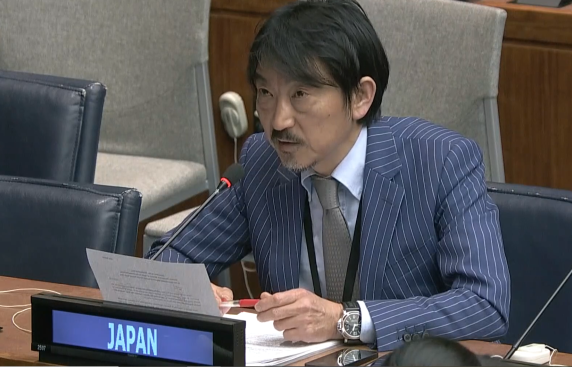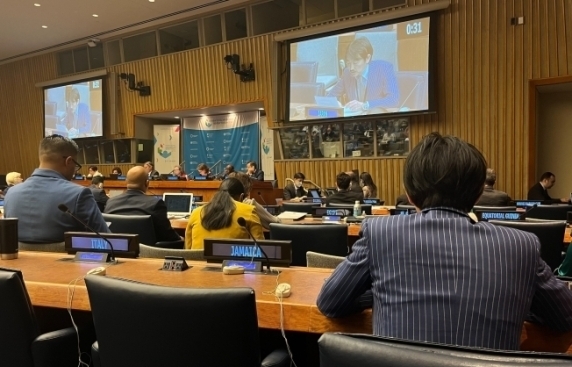国際移住レビューフォーラムにおける中川公使ステートメント(ラウンドテーブル1)
令和4年5月17日
 |
 |
(As delivered)
Thank you, Chair, for giving me the floor and we are grateful to the panelists for their insightful inputs. On behalf of the Government of Japan, we would like to briefly share Japan’s efforts to implement the GCM, specifically on Objectives 5 and 12.
With regard to Objective 5: Enhance availability and flexibility of pathways for regular migration, on April 1, 2019, Japan established new statuses of residence called “Specified Skilled Worker Category (i)” and “Specified Skilled Worker Category (ii)” in order to enhance the availability and flexibility of pathways for the regular migration of foreign nationals with expertise and skills who can be immediately effective in industrial fields where it is difficult to secure human resources and labor shortages need to be filled by foreign workers. As of the end of February 2022, we have 57,762 skilled foreign workers with these statuses in Japan.
Moreover, with the plan to create these new residency statuses, and from the perspective of more strongly and comprehensively promoting measures related to the acceptance and coexistence of migrants, in December 2018, the government compiled the "Comprehensive Measures for the Acceptance and Coexistence of Foreign Nationals," which includes measures related to various aspects of daily life such as the working environment, education, healthcare, and housing, and is steadily promoting related measures in an integrated manner. The “Comprehensive Measures” have been revised three times so far based on implementation status of the relevant measures.
As for Objective 12: Strengthen certainty and predictability in migration procedures for appropriate screening, assessment, and referral, the Immigration Services Agency of Japan provides training on trafficking in persons and human rights to its staff. The training is provided in cooperation with external lecturers from relevant ministries, the International Organization for Migration (IOM), NGOs, and other organizations. The training focuses on practical work, including case studies that clarify points to be considered when identifying victims. In addition, trained staff members provide feedback to frontline staff on what they have learned in order to improve their knowledge and awareness.
The spread of COVID-19, as well as various humanitarian crises, such as climate change and the situation in Ukraine, have caused serious problems to migration and displacement in many parts of the world. Japan continues its efforts to achieve safe, orderly, and regular migration, and we look forward to learning about the efforts and situations in other countries and hearing from migrant partners, diasporas, and civil society throughout this Forum.
I thank you.
